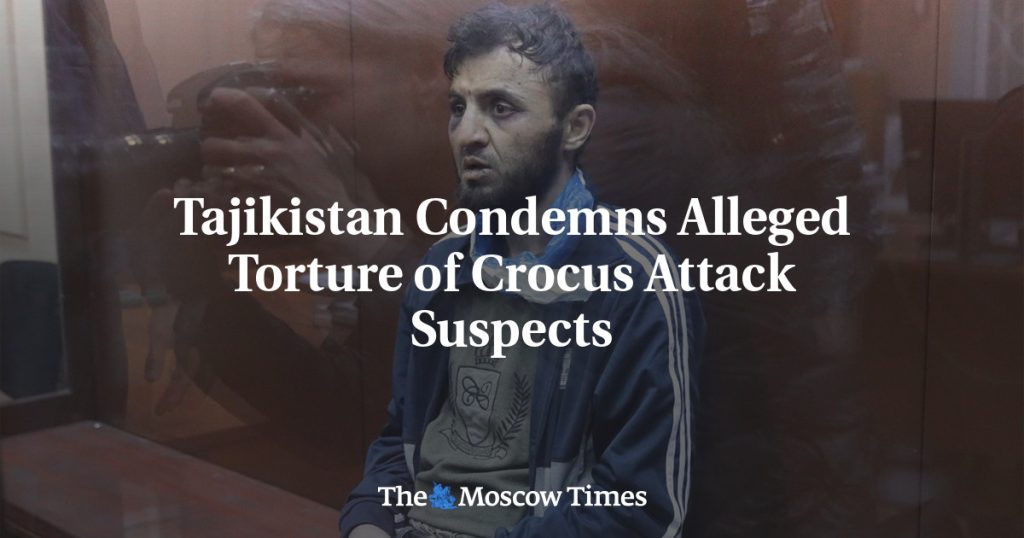Tajikistan’s Foreign Minister condemned the alleged torture of four suspected gunmen believed to be behind the deadly attack on a Moscow region concert hall last month. The Minister stated that the display of detaining suspected terrorists with the use of torture and inflicting bodily harm is unacceptable. After the attack on March 22nd, graphic videos and photos surfaced showing the suspected gunmen undergoing acts of torture, and later, in court, they had visible injuries.
The Foreign Minister noted that confessions obtained through torture have a well-known price, suggesting that the suspects’ testimonies may have been obtained through duress. The Kremlin has not commented on the alleged torture, although Russia’s state-appointed human rights commissioner denounced the use of torture against detainees as “absolutely inadmissible.” Torture is illegal under Russia’s constitution, and Russia is also a signatory of the UN Convention Against Torture.
Despite the Islamic State claiming responsibility for the Crocus City Hall attack, Russian officials have blamed Ukraine and its Western allies. However, Kyiv and the West have denied any involvement and accused Moscow of exploiting the tragedy for propaganda purposes. Recently, Russian state television released interrogation videos where the four suspected gunmen claimed they were promised safe passage to Ukraine and financial rewards for carrying out the attack.
The videos of the alleged torture of the suspected gunmen have sparked outrage, with international media outlets such as The New York Times and Reuters verifying the authenticity of the images. The use of torture against detainees has been widely condemned, and the Russian government faces criticism for its handling of the situation. The events have raised concerns about human rights violations, as well as Russia’s adherence to international treaties banning torture.
The incident has also strained relations between Russia and Tajikistan, as the four suspected gunmen are reported to be from Tajikistan. The Tajik government’s condemnation of the alleged torture reflects a broader concern about the treatment of its citizens abroad and highlights the need for greater cooperation and dialogue between countries in addressing terrorism and security threats. The case underscores the challenges of combating terrorism while upholding human rights and the rule of law.
Moving forward, it is essential for all parties involved to conduct a transparent and thorough investigation into the allegations of torture and ensure that those responsible are held accountable. The international community must continue to monitor the situation closely and work together to prevent the use of torture in counterterrorism efforts. Addressing the root causes of extremism and violence, as well as promoting respect for human rights and the rule of law, are crucial to effectively combatting terrorism and ensuring a more peaceful and secure world.


